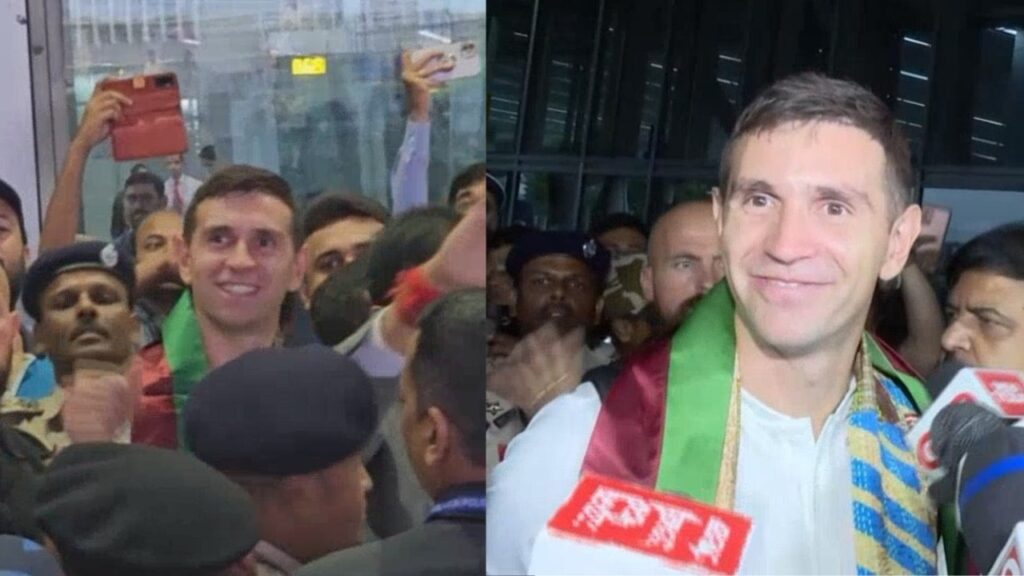
India didn’t play in the World Cup. But they won it (30 June 2002) on the streets of Kolkata. ‘Bra..aazil’- some sang, others shouted and still others hugged friends in delight. One man- a wizard called Ronaldo- had made their day. Kolkata celebrated Brazil’s record-breaking fifth World Cup victory as if there was no tomorrow, living up to its reputation of being a true soccer-crazy city.
Their faces painted yellow and green, men and women danced in the aisles and on the streets in unmitigated glee. From Netaji Indoor stadium, where thousands watched the match on a giant screen to Bosepukur, Sealdah, Bhowanipore and Rashbehari, the Samba kings ruled. “Jai bolo guru Ronaldo holo boss,” said a woman who came to sell muri-badam outside the stadium. Kolkata’s love for Brazil was inexplicable but ubiquitous. Without exception, the two sexes stood in unison saluting the best team in the world. For the moment, Kolkata had become the second capital of Brazil.
- Times of India, 1 July 2002.
For a country then ranked 140 in the FIFA world rankings, one whose team had lost in the first round of the pre-World Cup qualifiers, and one which has never played in the World Cup finals, this description has an unreal quality. Yet, for someone who has grown up in Kolkata, and witnessed the soccer-crazy nature of the city for years, those scenes were routine.
The scenes described above have been replicated over and over again during the last two decades. And it happened again at the Kolkata Airport when Emiliano Martinez, the goalkeeper of the Argentina side that won the World Cup last year, touched down in the city on Monday. It had happened with Pele and Maradona, and now it happened with Martinez. People were present in huge numbers to catch a glimpse of the star.
Every major international footballing competition in recent times has been lustily cheered by fans across the country, and the English Premier League is the staple weekend diet for Indian soccer aficionados.
Why do Indian soccer fans mourn Argentina’s loss in football, just as they mourn an Indian loss in cricket, and why is it that Indians feel the way they do about foreign players who hardly know a thing about their football?
This is because India, the most populous nation in the world, is still a marginal presence in global sport. The country continues to baffle with the panoply of anomalies it produces. Consider the fact that 44 percent of Indians still spend less than dollar a day, seventy out of a 1,000 Indian children die before their first birthday, and another 25 pass away before they turn five.
It is this ambience that forced the Indians to embrace technology and television, becoming, in the process, part of the global sporting village. Televised sport, for the Indian masses, became a vehicle for stimulating wants, mustering desires and triggering fantasies. This explains why Prasun Bhattacharyya, the hero in Moti Nandi’s famous novel Striker, dreams of a Brazilian coming to offer him a contract to play for the Santos football club in Brazil. The novel starts with Prasun, an aspiring young footballer, describing a dream he had the previous night. In his dream, he had seen a middle-aged foreigner, wearing white coat and trousers, stepping out of a limousine parked on the main road near his small-town house. Residents of his locality had never seen a limousine before. Accordingly, a crowd had gathered to see the car and gauge the reason behind the coming of the foreigner. When it became known that he had come to see Prasun, most people were stunned, at the same time happy to hear a local name on the foreigner’s lips. The Brazilian, when asked what he wanted, mentioned that he was the secretary of the Santos Football Club and announced his intention to sign Prasun to play for the club in the coming season. Upon hearing this, one of the residents rushed to inform Prasun’s father about the offer, and was very excited to mention that the foreigner represented the club for which Pele had played. The way in which Pele is spoken about in this novel is proof enough of the iconic status Brazilian football enjoys in India, making Brazil the local favorite.
Sport in India, like in more advanced Western nations, is now part of the integrated global leisure and entertainment industries. An analysis of the global football-viewing Indian population brings into focus the upshot of this transformation. While global football has become mass entertainment, the local game too has benefitted with India making it back to the top 100 of the FIFA rankings. And that’s why Martinez coming to Kolkata is almost a state festival, bringing the football fans together and generating mass frenzy and hysteria.




